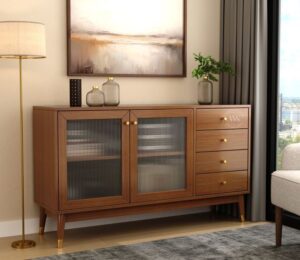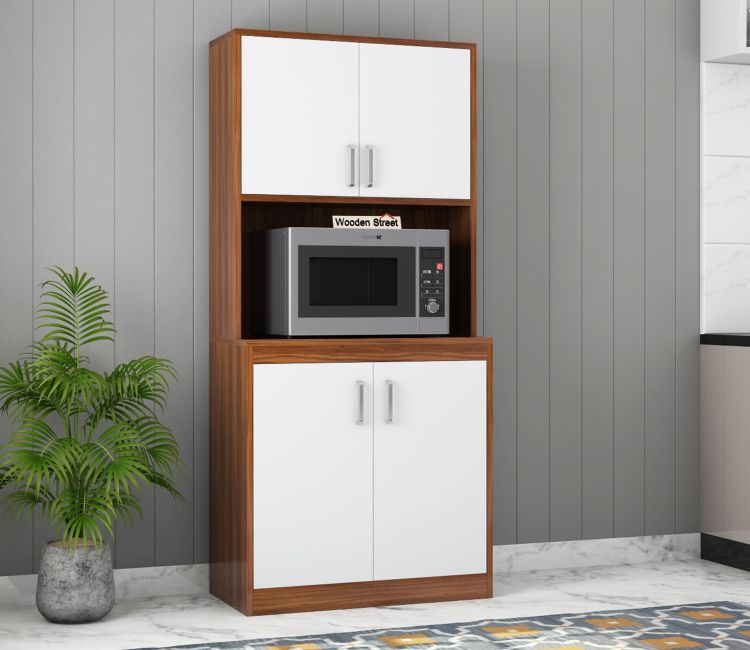Kitchen cabinets are the backbone of any kitchen, combining functionality with aesthetics. Whether you are remodeling your kitchen or building one from scratch, choosing the right type of cabinet is essential. Among the most popular options today are wooden kitchen cabinets and modular kitchen cabinet. Each comes with its own advantages, design possibilities, and limitations.
Deciding between wooden and modular cabinets depends on various factors including budget, space, style preferences, and long-term durability. In this article, we will break down the key differences between these two types of cabinets, helping you make an informed decision for your kitchen.

Understanding Wooden Kitchen Cabinets
Wooden kitchen cabinet are the traditional choice for many homeowners. Crafted from solid wood like oak, maple, or teak, these cabinets are celebrated for their durability, timeless appeal, and natural charm. Wooden cabinets add warmth and elegance to any kitchen, making them a preferred choice for classic or traditional interiors.
One of the major advantages of wooden cabinets is their longevity. With proper care, they can last for decades, often outlasting modular alternatives. Additionally, wooden cabinets can be refinished, repainted, or re-stained, giving you flexibility to update your kitchen’s look without a complete overhaul.
However, solid wood comes at a higher cost compared to other materials. Maintenance is also an important consideration; wooden cabinets require protection from moisture and pests to maintain their integrity over time.
Understanding Modular Kitchen Cabinets
On the other hand, modular kitchen cabinets represent the modern approach to kitchen storage. These cabinets are pre-manufactured in standardized sizes and designs, offering flexibility, ease of installation, and contemporary aesthetics. Made from materials like MDF (medium-density fiberboard), plywood, or laminates, modular cabinets are lightweight, durable, and customizable.
Modular cabinets are ideal for modern kitchens that prioritize functionality and space optimization. Their modular design allows for easy customization, rearrangement, and future upgrades. For instance, you can integrate pull-out drawers, corner carousels, and smart storage solutions without major construction work.
They also come in a wide range of finishes, colors, and textures, allowing homeowners to match them seamlessly with countertops, walls, and flooring. Maintenance is easier compared to wooden cabinets, as most modular options resist moisture and stains.
Comparing Design Flexibility
When it comes to design flexibility, modular cabinets have the edge. They are available in numerous finishes, colors, and configurations, making it easy to create a modern, minimalist, or even eclectic kitchen look. Modular cabinets can also include specialized sections like spice racks, pull-out pantries, or integrated lighting, which enhance usability.
Wooden cabinets, though timeless in appearance, have limited design flexibility unless you invest in custom craftsmanship. While wooden cabinets can be carved, stained, or painted, achieving modern modular-style innovations is often challenging and expensive.
Durability and Longevity
Durability is a key factor in kitchen cabinet selection. Wooden cabinets are inherently strong and can handle heavy loads, making them suitable for kitchens with frequent use. Their longevity can exceed decades if maintained properly.
Modular cabinets are durable but generally rely on engineered materials like MDF or plywood. While these materials are resistant to warping and moisture to some extent, they may not last as long as solid wood under heavy usage. That said, modular cabinets are easier to replace or repair due to their standardized components.
Maintenance Considerations
Maintenance is another important consideration when choosing between wooden and modular kitchen cabinets. Wooden cabinets require regular polishing, protection from moisture, and occasional refinishing to maintain their look. They are also susceptible to termite or pest attacks if not treated properly.
Modular cabinets, in contrast, are easier to clean and maintain. Laminates and finishes resist scratches, stains, and moisture, making them suitable for busy kitchens. Repairing a damaged modular cabinet panel is usually simpler and more cost-effective than refinishing a wooden cabinet.
Cost Comparison
Cost is often a deciding factor. Wooden kitchen cabinets tend to be more expensive due to the cost of raw wood and craftsmanship. The initial investment is higher, but the long-term durability often justifies the expense.
Modular kitchen cabinets are more budget-friendly, especially for homeowners seeking modern designs without high upfront costs. Their modular nature also allows for selective investment—you can choose to spend more on critical sections like the sink area while economizing elsewhere.
Space Optimization
Maximizing space is crucial in modern kitchens, especially small or compact ones. Modular cabinets are specifically designed to optimize storage. Features like pull-out drawers, rotating carousels, and adjustable shelving make modular cabinets highly functional.
Wooden cabinets, though sturdy, are often limited in terms of built-in storage innovations. Custom wooden solutions can overcome this, but they usually come at a higher cost and longer installation time.
Aesthetic Appeal
Wooden cabinets bring a natural, warm, and luxurious feel to the kitchen. They work well in traditional, rustic, and transitional kitchen designs. The unique grains, textures, and finishes of wood cannot be exactly replicated in engineered materials, giving each wooden cabinet a distinctive character.
Modular cabinets excel in sleek, modern, and minimalist kitchens. Their clean lines, uniform finishes, and contemporary designs align well with modern interiors. With modular options, you can also experiment with bold colors, high-gloss finishes, and glass inserts to create a statement kitchen.
Environmental Impact
If sustainability is important, it’s worth noting that wooden cabinets sourced from responsibly managed forests can be environmentally friendly. Solid wood is natural, biodegradable, and long-lasting, reducing the need for frequent replacements.
Modular cabinets often use engineered materials like MDF or particleboard, which can involve adhesives and chemicals. While these are durable, they are less eco-friendly than natural wood. However, modular designs reduce wastage during manufacturing due to their standardized sizes, which is a plus in terms of resource efficiency.
Installation and Timeframe
Installing wooden cabinets often involves custom measurements, on-site adjustments, and skilled labor. This can extend the timeframe for kitchen renovation. Modular cabinets, however, are prefabricated, making installation quicker and more convenient. Most modular kitchens can be installed within a few days, minimizing disruption.
Which One Should You Pick?
The choice between wooden and modular kitchen cabinets depends on your priorities:
-
Choose wooden cabinets if you value longevity, classic aesthetics, and natural charm. They are ideal for traditional kitchens, large spaces, or homeowners seeking a long-term investment.
-
Opt for modular cabinets if you prioritize flexibility, space optimization, modern design, and easier maintenance. Modular kitchens are perfect for contemporary homes, small spaces, or those looking for customizable storage solutions.
Many homeowners also choose a hybrid approach—using wooden cabinets for key focal areas like islands or upper cabinets while integrating modular components in high-traffic zones for functionality.
Conclusion
Both wooden and modular kitchen cabinets offer unique benefits. Wooden cabinets bring timeless beauty, durability, and luxury, while modular cabinets provide flexibility, modern design, and convenience. By evaluating your budget, space, style preferences, and long-term needs, you can select the perfect kitchen cabinet solution.
Ultimately, the right choice enhances not only the functionality of your kitchen but also its aesthetic appeal, making daily cooking and dining a more enjoyable experience. Whether you go with solid wood or modular innovation, your cabinets should reflect your taste, complement your interiors, and support your lifestyle.

